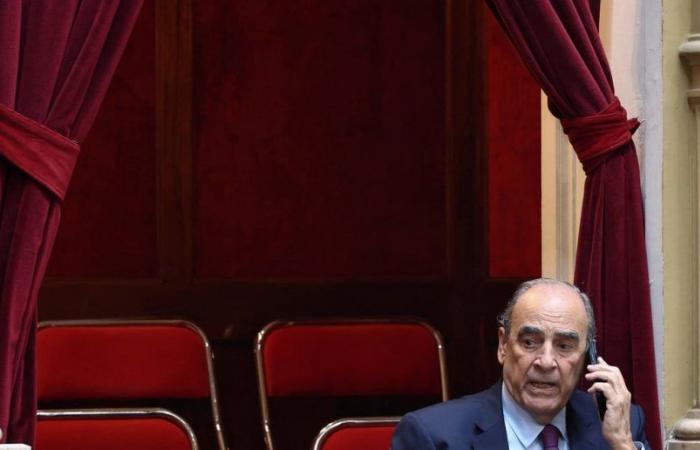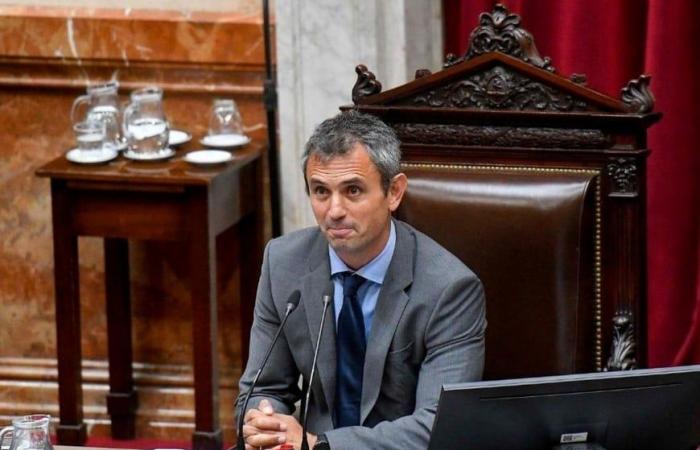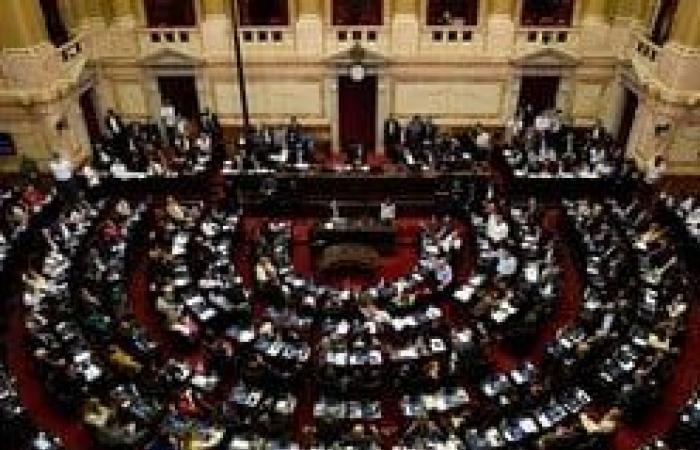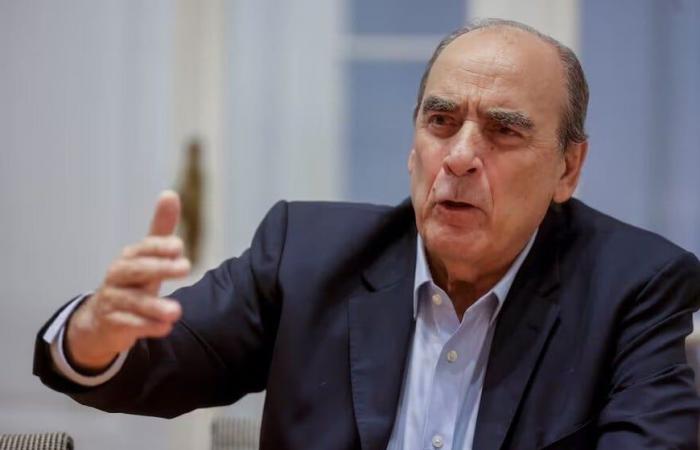After the sanction of the Fiscal Bases and Measures laws in the Senate, the libertarian management accelerates negotiations in the Chamber of Deputies. The objective is for them to be approved before July 9 in order to seal the postponed May Pact on the next national date. At the same time, they seek to reverse the rejections in Profits and Personal Assets that they consider necessary in line with the presidential objective of “balancing the fiscal accounts.”
Due to the changes introduced in the Upper House, libertarian initiatives will once again be discussed by Deputies. However, the Government came out to publicly admit that it will try to reverse some of the modifications and press for the original texts.
This Sunday, the head of the Lower House, Martín Menem, stated that the ruling party will work to sanction several points of the articles that were excluded by the Senate. “Everything that is approved is already law, but we are going to insist on the fourth category of Personal Profits and Assets. Also on privatizations,” he indicated.
“As we are the chamber of origin, we can accept the modifications they introduced or we can insist on the original project,” Menem said in an interview with Radio Rivadavia, pointing out that the debate will be resumed at the end of June, after the short week ahead. for the multiple holidays.
In addition, Menem expressed his hope that they will be approved before July 9 and sanctioned without major modifications. “There is already a Base Law. It remains to be defined what type we are going to have, whether the original one, the one modified by the Senate, or a mix. I have no doubt that by July 9 the law will be sanctioned,” he promised.
“It would be difficult for me to understand that the same deputies who 45 days ago voted in favor of a project could not vote in favor of the same project. Argentina does not change, it still needs the law, the reforms, and that we institutionally reflect what the people voted for.” at the polls,” he added, showing confidence in legislative support.
The hand of Francos
In practice, these negotiations have already begun and are in charge of the Chief of Staff, Guillermo Francos, who last Thursday led a conclave with representatives of allied blocs in Deputies.
Francos met with Cristian Ritondo (PRO), Rodrigo de Loredo (UCR), Miguel Pichetto (We Make the Federal Coalition), Pamela Calletti (Federal Innovation) and Juan Manuel López (Civic Coalition) and Gabriel Bornoroni (LLA).
 See alsoFrom the ambitious initial project to that approved in the Senate: what remained of the original Base Law
See alsoFrom the ambitious initial project to that approved in the Senate: what remained of the original Base Law The idea conveyed by the Chief of Ministers is that the deputies insist on the aspects that were contained in the half-sanction that came from the Chamber and that were later modified by the Senate.
This includes replacing the original list of privatizable companies, including Aerolíneas Argentinas, Correo Argentino and Radio Televisión Argentina. But Francos placed special emphasis on replacing the fourth category of the Income Tax and the reduction of Personal Assets.
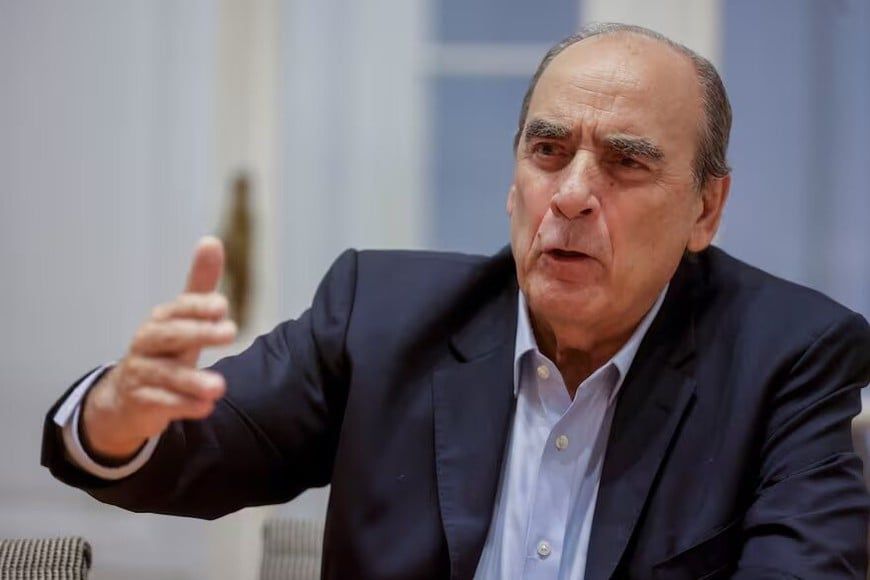 Francos pointed out that the fiscal changes “are not taking into account what the needs of the provinces are.”
Francos pointed out that the fiscal changes “are not taking into account what the needs of the provinces are.” This Sunday in statements to Radio Miter, the official acknowledged that this was the objective of that meeting with the leaders of the dialogue opposition since “from our point of view an increase in these taxes would be positive for everyone.”
Franco even targeted the legislators who voted to eliminate those articles. “It is strange that in the Senate, which is made up of representatives of the provinces, there have been senators who voted against the reinstatement of the personal income tax. It is not taking into account what the needs of the provinces are,” he noted.
Likewise, he said he was “optimistic” about what the reviewing Chamber is going to do now, and said that he hopes that the deputies will reconsider the decisions made in the Senate, since “an increase in these taxes would be positive for everyone.” And he announced that during the coming weeks he will continue talking with the deputies.
The head of the Union for the Homeland bloc in the Senate, Juliana Di Tullio, requested the expulsion of the Secretary of Tourism, Daniel Scioli, and two non-Kirchnerist Peronist senators from the Justicialist Party.
The Buenos Aires senator expressed herself about this in her X account: “Today, June 16, the day they tried to kill (Juan Domingo) Perón with a bombing of Plaza de Mayo, I demand the expulsion of Scioli, Kueider and Espínola from the party Justicialist in memory of the 300 victims of yesterday and today.”
The provincial representatives referred to are Edgardo Kueider (Entre Ríos) and Carlos “Camau” Espínola (Corrientes), who accompanied the ruling party in the general vote on the Bases law last week.
In the case of Scioli, it is for having agreed to join the Government of President Javier Milei, after the maneuver of inclusion in the national Cabinet carried out by the former Minister of the Interior and current Chief of Staff, Guillermo Francos.
“We must not allow their spurious decisions to be made in the name of Peronism. Not in our name,” concluded Di Tullio. This is one of the swords that former president Cristina Kirchner has in the Senate.
Both Kueider and Espínola belong to the Federal Unity bloc, which is a detachment from the Kirchnerist interbloc that, in addition to Unión por la Patria, is made up of the National and Popular Front led by José Mayans (Formosa).

